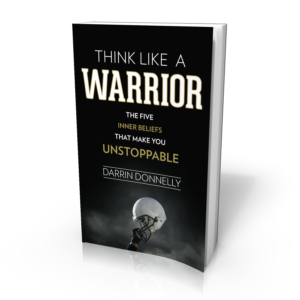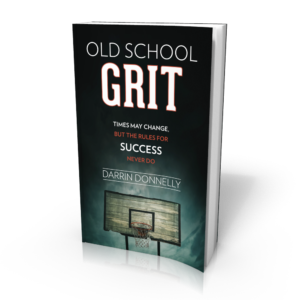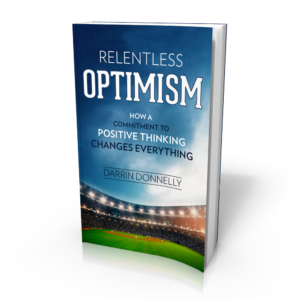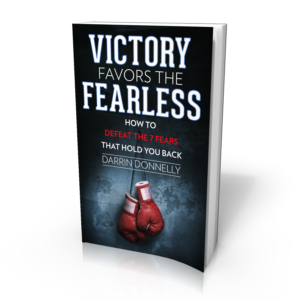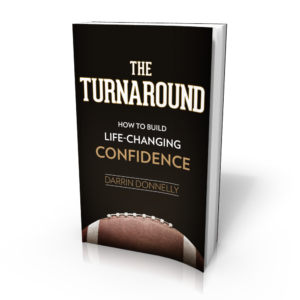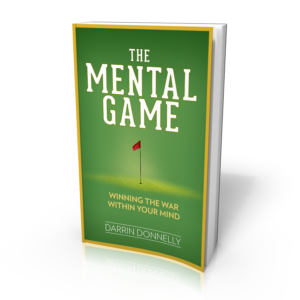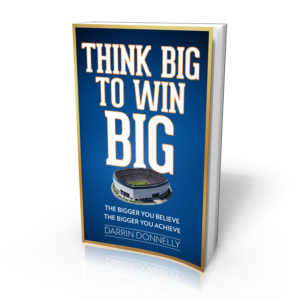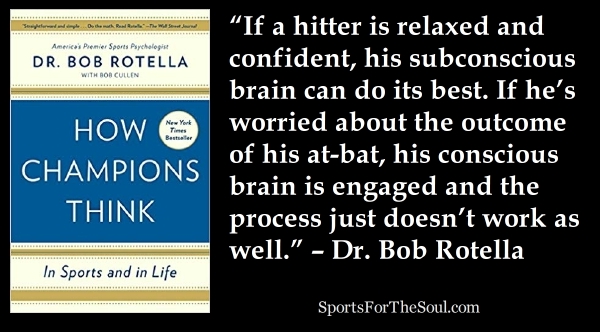 One thing the most successful achievers in sports show us again and again is just how powerful our subconscious mind is in whether we succeed or fail.
One thing the most successful achievers in sports show us again and again is just how powerful our subconscious mind is in whether we succeed or fail.
Renowned sports psychologist Dr. Bob Rotella explains…
An average major-league fastball takes a little more than four-tenths of a second to reach home plate. A hitter has perhaps a tenth of a second to decide whether to swing. Great hitters can see and process a lot of information in that tenth of a second. They get a look at the ball’s trajectory. They may see something about the pitcher’s hand as he releases the ball. (When the hitter sees the side of the hand, it probably indicates a breaking ball. The pitcher’s palm indicates a fastball.) They may pick up something about the ball’s spin.
But that information processing has to be done at the subconscious level. There just isn’t time for conscious thought.
If a hitter is relaxed and confident, his subconscious brain can do its best in this process. If he’s worried about the outcome of his at-bat, his conscious brain is engaged and the process just doesn’t work as well. He won’t be entirely focused on the little cues he has to process before deciding whether to swing.
The batter needs to get lost in just seeing the ball and trusting that the only thing he can control is letting himself unconsciously react to what his eyes are seeing. Doing so won’t, of course, guarantee a hit. But it can make certain that a .300 hitter remains a .300 hitter in clutch situations.
– Bob Rotella, from his book How Champions Think
Two words in the above passage stand out to me: RELAXED and CONFIDENT. To perform your best (assuming, of course, that you’ve put in the hard work of preparing yourself and knowing your stuff), you need to be relaxed and confident.
When we consciously try too hard to force something to work, we usually make our situation worse, not better.
This applies to all areas of life, not just sports.
Think of the salesman who tries too hard to make the sale. He blurts out memorized lines and rattles off confusing statements. He does way too much talking and not enough listening. Thus, he comes across as pushy or desperate. On the other hand, the salesman who knows his stuff, is prepared to answer any question you may have, and comes across RELAXED and CONFIDENT is much more likely to put you at ease, earn your trust, and make the sale.
The person delivering a speech will find it much easier to win over their audience if they’re RELAXED and CONFIDENT about what they have to say and not consciously worrying about how well the speech is received.
When I’m writing, I’ve learned that when I try to force the story, it comes across clunky and stale. But, when I’m RELAXED and CONFIDENT, the story tends to tell itself. The characters speak for themselves and (especially in the case of writing nonfiction) the story’s main points emerge naturally.
Once you’ve put in the work to be prepared, you have to let go and trust your subconscious to take over. You can’t consciously force it.
When it’s go time, tell yourself to be relaxed and confident. Then let go and let it happen.
